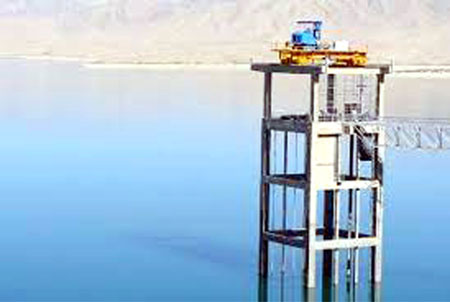The Islamic Emirate said it is ready to discuss the issues related to the Helmand river treaty between Kabul and Teheran and that it remains committed to the treaty.
Earlier, the first Vice President of Iran, Mohammad Mokhber, called on the Islamic Emirate to resolve the issue of the water treaty between Afghanistan and Iran.
The deputy spokesman for the Islamic Emirate, Inamullah Samangani, said that Afghanistan is facing a lack of water.
“The Islamic Emirate is ready to solve the concerns of Iran through negotiations,” he said.
The Iranian first vice president insisted Afghanistan’s foreign ministry pursue the issue of the water treaty between Afghanistan and Iran.
“The Afghan delegation must stay committed to the (water) treaty which is based on international norms and that allows access to the people of Sistan and Baluchestan Province, and it should be resolved soon,” he said.
However, analysts believe that Iran is overstepping its claims with the water treaty.
“There is a need for a water (measuring) instrument to be installed to measure the amount of water so these claims would be prevented,” said Najib Aqa Fahim, an international relations analyst.
“It is not good that the two neighboring countries engage in disagreements over a document which already exists. It is better to assess the documents and take steps to adhere to them,” said Hameeduallah Yalani, an economist.
According to the 1973 treaty, Afghanistan is committed to sharing the water from Helmand River with Iran at the rate of 26 cubic meters of water per second, or 850 million cubic meters per annum.
Meanwhile, Two days after the complaint of Iran’s foreign ministry saying that Iran did not receive its share of water from Helmand River last year, officials from the Afghan Ministry of Energy and Water said Iran will receive its share based on the water treaty signed by the two countries in 1973.
According to the treaty, Afghanistan committed to sharing the water from the Helmand River with Iran and will supply 26 cubic meters of water per second, or 850 million cubic meters per annum.
The treaty was signed by the then-Prime Minister of Afghanistan Mohammad Musa Shafiq and his counterpart Abbas Hoveida, the then-Prime Minister of Iran.
Saeed Khatibzadeh, spokesman of Iran’s foreign ministry, on Monday at a press briefing said last year Iran only received five percent of its share of water. “During the past water year less than 5 percent of Iran’s share (of the Helmand river) based on the 1973 agreement has been given. And so far no share has been given to Iran (this year).”
Officials from the Ministry of Energy and Water meanwhile said the Islamic Emirate is committed to giving Iran’s share based on the water treaty. According to the officials, in the past year enough water might not have flown to Iran due to droughts in Afghanistan.
Akhtar Mohammad Nusrat, spokesman of the ministry, said a delegation has gone to Nimroz province to assess the issue of water. “The Islamic Emirate will give water based on the Musa Shafiq treaty. I can say that there was drought and because of that water might not have flowed enough,” he said.
Meanwhile, Najib Aqa Fahim, an international relations analyst, said every year more water flows into Iran than what has been specified in the water treaty. “In the past 40 years since the signing of the treaty, Iran has received many times more water from Helmand River (than the amount specified in the treaty),” he said.










